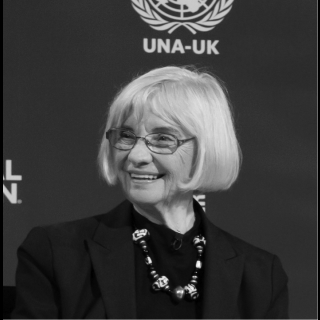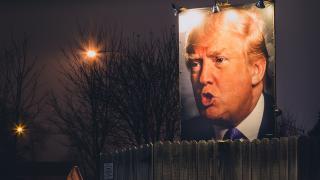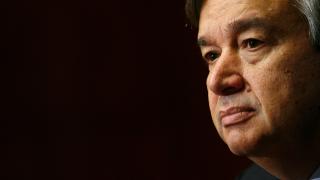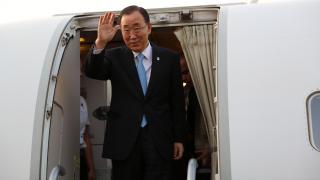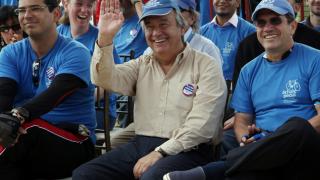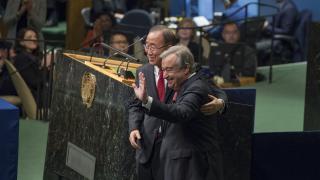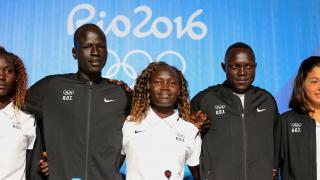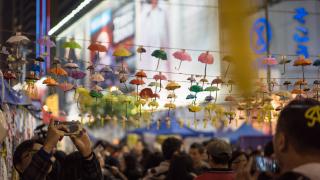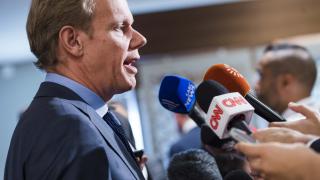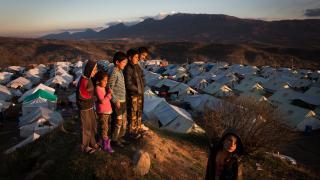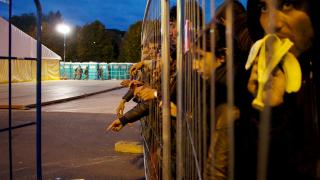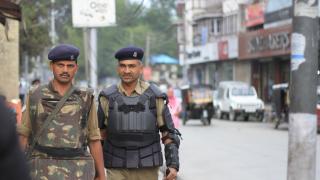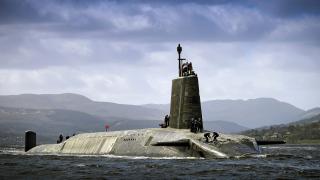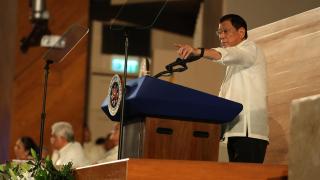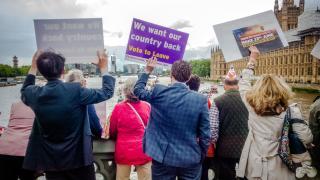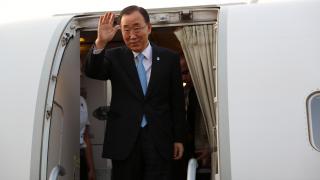
Ban Ki-moon became the eighth UN Secretary-General in January 2007, when the world was a much quieter place than it would soon become. Unforeseen ahead were the Great Recession; protests across the Arab world followed by deadly government backlashes; the emergence of ISIL as a global threat; and the explosion of refugees and migrants in the largest numbers since World War II, adding fuel to the rise of ultraconservative, xenophobic politics.
When you speak to people who have worked with him – or observed him closely – during his 10-year tenure, their first words are almost always positive. He is, they say, an honest, hardworking, gentlemanly international civil servant who has met his most important goals, in particular on climate change. But probe further and he is also described as a secretive man, who came to office surrounded by a protective entourage and was never able to reach the popularity of his predecessor.
As Ban approaches the end of his term in December 2016, he looked back in an interview with me for The Nation and reviewed what he had managed to do in these tumultuous years, regretting that there that there were “fires burning still” beyond the UN’s control. But he also showed flashes of anger in describing the procedural obstacles and pointless blocking techniques that stood in his way in both the Security Council and General Assembly. He acknowledged the frequent criticisms directed at him and the organisation by critics who get little news about the UN and then say: Mr Ban is not visible. “I learned a lot”, he said.
In his decade in office, Ban, a 72-year-old former foreign minister of South Korea, has not managed to overcome his aloof image and the annoyance caused by the often uncommunicative style of his tight circle of aides. This has opened the door to negative media coverage and to PR-savvy civil society advocates who have exposed the UN’s reluctance to engage with, or react quickly to, numerous crises, such as sexual abuse by UN peacekeepers and the introduction of cholera to Haiti by troops belonging to the UN mission. Though Ban may not have been personally responsible for these failures, he symbolises the UN in the eyes of critics. Yet he has been a quiet force behind significant policy changes, among them issues opposed by powerful conservative states. And he has presided over the most ambitious global anti-poverty agenda in UN history, the Sustainable Development Goals, which were driven by national priorities, not handed down peremptorily from the UN hierarchy.
From the start of his tenure, Ban sought to make an international pact on addressing climate change a signature legacy. That came together last December in Paris. Almost. “The agreement in Paris last year was quite encouraging – the solidarity shown by the world community. But it has a long way to go”, he said.
On social issues, he has made emergency contraception universally available in UN operations for women raped in conflict areas and other crises. Defying opposition in the General Assembly, he approved benefits to spouses of UN staff in single-sex marriages. He has publicly supported LGBT rights internationally.
Some of his biggest internal challenges have been in management reform. “There are many issues for which I’ve been fighting to make this complex organisation into a modern one – more efficient, more accountable, and more transparent”, he said, listing the strengthening of the UN ethics office and the introduction of required annual reports from senior officials on priorities and performance. But, he said, comparing the UN to a corporation:
Here in the United Nations, we have 193 board members... The problem is that each and every board member seems to believe that they are the chairman.
As an example, he mentions his “mobility system” – a plan to move UN staff around from place to place or job to job to prevent the kind of sinecures the organisation is known for. “You know how long it took me until I got this mobility proposal adopted? Seven years! It takes only one or two voices to do this kind of damage”, he said, adding that the frequent demands for unanimity, a zero-sum game in the 193-member Assembly, has meant that “even a single country can block very good decisions and ideas”.
Outsiders who study the UN say that Ban’s record on management is mixed. On the positive side they cite the new practice of releasing (voluntarily) financial disclosure and declaration of interests statements. In numerous appointments, however, he is said to have accommodated the demands of regions and governments though their nominees were not always the best candidates.
Sam Daws of Oxford University is among a majority of UN experts who believe that Ban did not give enough priority to communications, including in his appointments:
The Secretary-General needs to articulate well what the UN is doing, and why it matters, to a global audience. If an SG is a good manager of people then he or she can use this to compensate for any weaknesses – e.g. in communications – by appointing [other senior officials] who can perform well with the media.
Ban is not the first UN chief to keep a low profile. Dag Hammarskjöld, considered by many to have been the best postholder, had a shy, quiet demeanour. But Ban had the misfortune to follow Kofi Annan, who became somewhat of a celebrity in New York. Helmut Volger, author of A Concise Encyclopaedia of the United Nations, has written that while “Ban’s balance sheet is as good as that of most of his predecessors, he lacked the charisma of a great Secretary-General needed in these days”.
Others, including Kishore Mahbubani, an influential former ambassador of Singapore to the UN, point to Western bias, suggesting that the Asian political culture and formal social interaction that Ban brought with him to New York was neither understood nor appreciated:
He had the courage to speak out strongly for a two-state solution for Israel and Palestine, when everyone else dodged the issue. He was also forceful on climate change. That helped the Paris conference to succeed.
Dan Plesch, a UN scholar at the School of Oriental and African Studies, believes that Ban was criticised for “not conforming to Western desires for film star charisma” and that he has “worked tirelessly under the political pressures of the [Security Council’s five permanent members] that can crush almost any initiative”.
During the interview, Ban, who as a boy suffered with his family through the Korean War, described his distress at recurrent inaction in the Security Council. “When North Korea has launched a missile, the Security Council in several instances have not been able to do anything, even [issue] a press statement”, he said, referring to the lowest level of expression to emerge from Council meetings. “I have been raising this issue with member states: if you continue like this your authority will be challenged.”
His supporters have pointed to his quiet diplomacy. In 2008, for example, he talked his way into Myanmar, then under repressive military rule and closed to the outside world, to demand the right of the UN to send in relief supplies, which had been blocked by the generals after a devastating cyclone.
In his second term, Ban began to make more pointed public statements. In January 2016, Ban wrote an opinion article in The New York Times calling Israeli policies in Palestinian lands “shortsighted or morally damaging”, which drew vitriolic criticism from Israeli leaders. In June 2016, he surprised everybody by saying publicly that Saudi Arabia had been scratched from a list of countries whose military kills and maims children – documented in many reports from Yemen – because the Saudis had threatened to withhold financial support for several UN operations.
He used his last speech at the opening of the General Assembly to lash out at the Assad regime and its supporters, saying:
Many groups have killed many innocents, but none more so than the Government of Syria … Powerful patrons that keep feeding the war machine also have blood on their hands.
Each new UN chief brings with him (they have all been men so far) a distinct personal, political, cultural, economic and operational background. It is perhaps no surprise that António Guterres, with his open and engaging personality – and experience as UN High Commissioner for Refugees – emerged as the favourite to succeed Ban, with unanimous backing from the Security Council and General Assembly. He too will face pressure to deliver behind the scenes, from the bully pulpit and in front of the camera. And like his predecessor, he will have no powers to compel states to act differently. Ban had a congenial partner in President Barack Obama and was not treated as a convenient scapegoat by Washington, as several of his predecessors had been. Guterres is not likely to have such an easy ride. It is not called the world’s most impossible job for nothing.
A previous version of this article was published in The Nation on 20 September.
Photo: copyright MONUSCO

